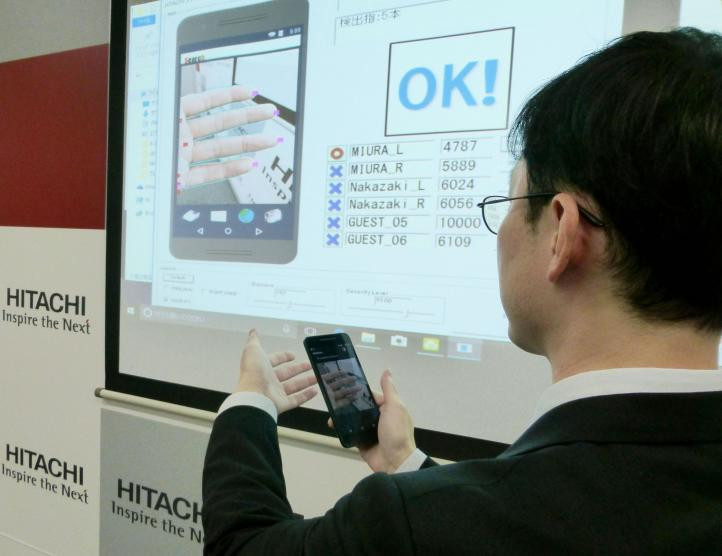Finger-vein scanning to authenticate financial transactions in the works at Hitachi
A person's finger veins are much harder to counterfeit than fingerprints and could aid the fintech revolution.

Hitachi has developed an improved method for finger-vein authentication that makes use of a smartphone's camera, and software that can analyse and identify an individual's fingers from the vein patterns visible through their skin, making it easier to verify identities for online financial transactions.
Online shopping continues to get more popular every year, but now a large amount of financial transactions are carried out on smartphones and tablets, meaning that these mobile devices have become targets as they store a huge amount of personal information, or are the gateway to accessing private data.
To prevent criminals from being able to compromise users' bank accounts, smartphone manufacturers now mandate passcodes and biometric fingerprint scanning, but it is still possible for these to be spoofed and bypassed.
Biometric finger-vein reading is already in existence (and Hitachi is a key proponent of the technology), but it typically only works if you have special infrared sensors to hand to capture vein patterns invisible to the naked eye. However, the advantage of finger-vein authentication is that it is much harder to spoof finger veins than fingerprints, facial recognition or voice prints.
To make finger-vein authentication more viable, Hitachi has come up with a new method, whereby the camera on a smartphone can take a photo of a person's hand and use colour recognition software to pick out the vein-pattern information from each finger in the photo without using infrared light.
The software is also clever enough to compensate for the positioning and inclination of the user's fingers in the photo by looking at the shape and colour of the fingers and being able to examine several fingers at once, ensuring a more accurate result.
Hitachi says that finger-vein authentication is particularly pertinent now. A growing number of financial institutions around the world are revolutionising banking services with emerging technologies (a field commonly known as fintech), and as such, more secure methods of authentication will soon be needed.
© Copyright IBTimes 2025. All rights reserved.






















